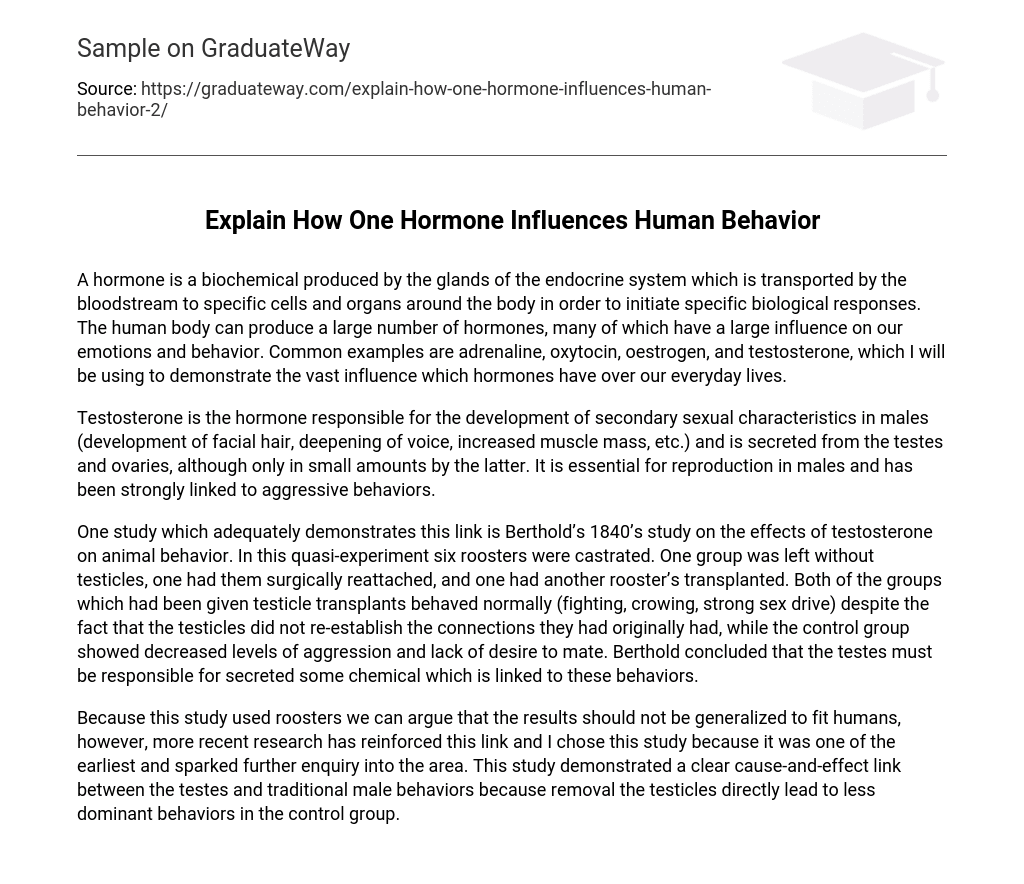A hormone is a biochemical produced by the glands of the endocrine system. It is transported by the bloodstream to specific cells and organs around the body in order to initiate specific biological responses. The human body can produce a large number of hormones, many of which have a significant influence on our emotions and behavior. Examples include adrenaline, oxytocin, estrogen, and testosterone. These hormones have a vast influence over our everyday lives.
Testosterone is the hormone responsible for the development of secondary sexual characteristics in males, such as facial hair growth, deepening of voice, and increased muscle mass. It is secreted from the testes and ovaries, although only in small amounts by the latter. Testosterone plays an essential role in male reproduction and has been strongly linked to aggressive behaviors.
One study that adequately demonstrates a link between testosterone and animal behavior is Berthold’s 1840s research. In this quasi-experiment, six roosters were castrated. One group was left without testicles, one had them surgically reattached, and one had another rooster’s transplanted. Both groups that received testicle transplants behaved normally (fighting, crowing, strong sex drive) despite the fact that the testicles did not re-establish their original connections. Meanwhile, the control group showed decreased levels of aggression and lack of desire to mate. Berthold concluded that the testes must secrete some chemical responsible for these behaviors.
Although this study was conducted on roosters, it is important to note that the results cannot be generalized to humans. However, it is worth mentioning that more recent research has further supported the link between testes and traditional male behaviors. I chose this study because it was one of the earliest studies in this area and sparked further inquiry into the subject.
The study clearly demonstrated a cause-and-effect relationship between testicles and traditional male behaviors. The removal of testicles directly led to less dominant behaviors in the control group.





